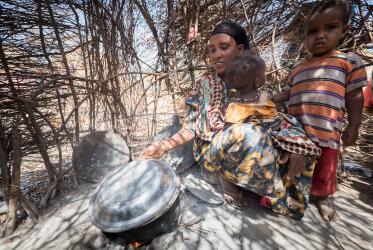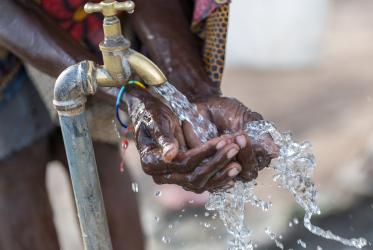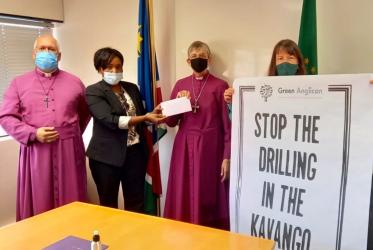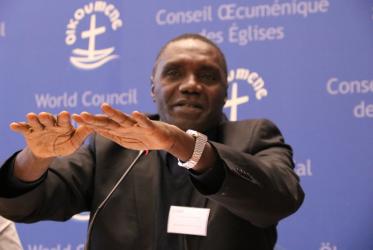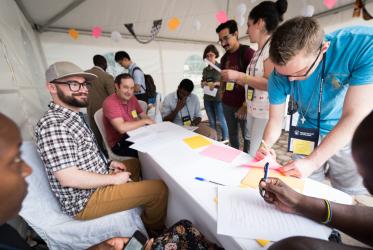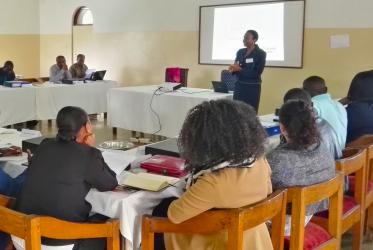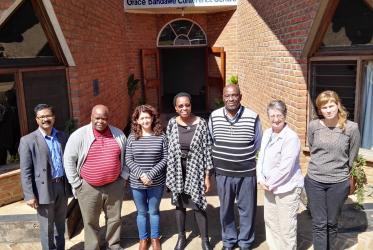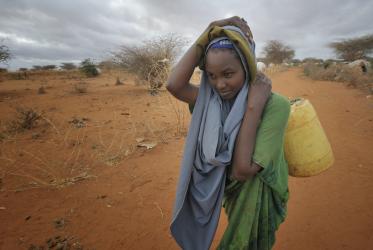Displaying 1 - 20 of 24
Protecting Ethiopia’s church forests
27 October 2021
Agreement works toward food security in South Sudan
23 February 2019
Pan African Women of Faith issue fervent Call to Action
20 November 2018
‘Sokoni’ transforms marketplace into mission
13 March 2018
African youth takes stand at first ever WCC Eco-School
03 August 2017
Applications open for WCC Eco-School
10 May 2017
Seven weeks of Lent highlight water crisis in Africa
01 March 2017
